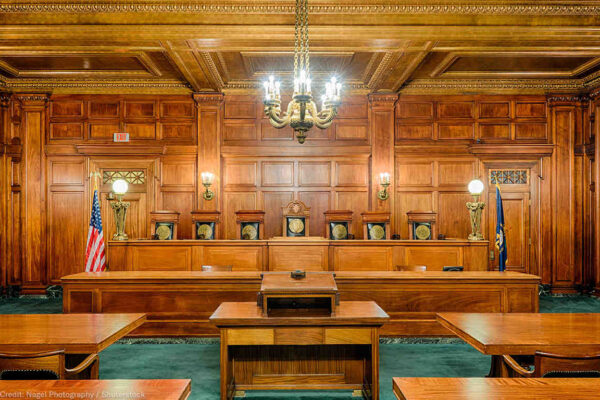Kentucky Supreme Court dismisses challenge to Marsy's Law, does not rule on merits
The following statement can be attributed to ACLU of Kentucky Spokesperson Samuel Crankshaw:
The ACLU of Kentucky is disappointed that Marsy's Law remains in effect after the Kentucky Supreme Court found the Kentucky Association of Criminal Defense Lawyers lacked standing to challenge the measure. However, it is important to note the Supreme Court did not rule on the merits of Marsy's Law, meaning the measure could still be challenged in the future.
Marsy's Law is well-intentioned but deeply misguided. We agree with proponents of Marsy's Law that the current legal system can and does fail victims, but Marsy's Law is not the answer. It unnecessarily complicates the criminal legal process, threatens to increase prison populations, interferes with due process, and clogs already overburdened courts.
Marsy's Law is an empty promise.
The current system can and does fail victims, but Marsy’s Law does not do anything to actually help them. Reexamining the existing Victims’ Bill of Rights and strengthening protections for victims could give them the support they need if their rights aren’t respected and the ability to hold the system accountable if it fails them. The vague and inconsistent language in Marsy's Law does not include any mechanisms ensuring victims can actually exercise the new "rights" outlined in the measure.
Marsy's Law is vague and confusing.
The vague language in Marsy's Law opens the door to inconsistent and problematic interpretations that we have seen in other states that passed their own versions Marsy's Law, including places like Florida and the Dakotas. In one such instance, police officers themselves claimed victim status and witheld information from the public. Public officials, particularly those entrusted to enforce the law with lethal force, should operate transparently and be accountable to the people.
Marsy's Law turns due process on its head.
The principle of "innocent until proven guilty" is at the core of our criminal legal system. Marsy’s Law designates one party a victim, meaning the court is already presuming the other party to have committed a crime before they have even been tried. There cannot be a victim unless there is a perpetrator. No matter the charges, all people have the constitutional right to a fair trial.
###
View the court's opinion in the PDF below.
Documents
Related Content

Amendment 1: What does Marsy's Law really do?

Vote No on Amendment 1: Marsy's Law Is Bad For Victims And Wrong For Kentucky

ACLU-KY Letter to Legislators on SB15, Marsy’s Law
Stay Informed
Sign up to be the first to hear about how to take action.
By completing this form, I agree to receive occasional emails per the terms of the ACLU’s privacy statement.
By completing this form, I agree to receive occasional emails per the terms of the ACLU’s privacy statement.

